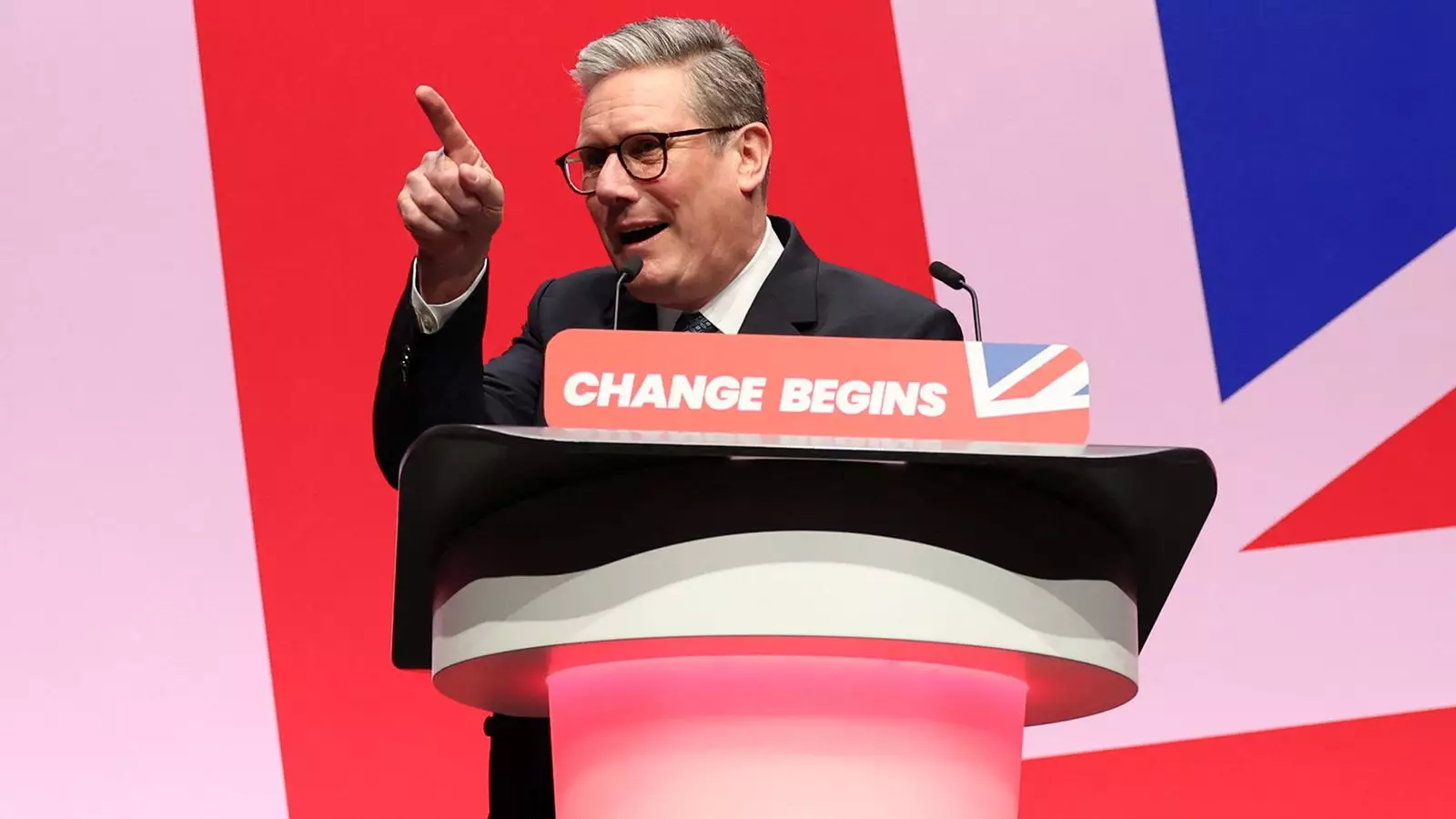For the first time in history, a Labour government is on track to see an increase in child poverty, and that’s a haunting realization that should send shivers down the spine of any compassionate citizen. As political debates churn around fiscal policies and departmental cuts, it becomes glaringly clear that the rhetoric surrounding economic recovery has inadvertently paved the way for the rise of Reform UK. In this dysfunctional dance of prioritization, the voices of the marginalized risk being muted, ushering in a new wave of suffering that could define future generations. The urgency for a transformative approach is palpable, particularly as high-profile figures like Jeremy Corbyn emphasize a wealth tax on the richest individuals to revive public services, including our crumbling educational and healthcare systems.
The Sharp Contrast of Priorities
The decision to increase defense spending at the expense of social welfare posits the question—what are our real priorities as a society? If a government chooses to funnel resources into military endeavors while slashing funding for critical services meant to support the vulnerable, it sends a sobering message: economic security is secondary to earthly power. This situation is exacerbated by Chancellor Rachel Reeves’s understanding of fiscal necessities, which overlooks the very real possibility that impoverishing families through budget cuts inevitably leads to greater societal issues. A statement recently released makes this clear, declaring “This isn’t about scarcity; it’s about priorities.”
When Reeves posits that fiscal constraints dictate her strategies, it’s imperative to challenge the framing of the debate. The troubling truth is that the current trajectory forecasts a staggering increase in poverty, with an estimated 250,000 more people—children included—falling into relative impoverishment by 2030 due to these draconian measures. This is a ticking time bomb ready to explode, leaving countless families in despair as poverty becomes normalized.
The Voices Calling for Change
It’s both encouraging and concerning to witness former Labour leader Jeremy Corbyn alongside various progressive MPs rallying for a transformative economic model. Their call for wealth taxes—especially targeting individuals with assets exceeding £10 million—charts an alternative path that could redefine the welfare landscape in the UK. It’s no longer just about who is governing, but about how governance is approached: what sacrifices are made and which societal segments are sacrificed in the name of fiscal austerity.
The letters coming out of this political realm paint a picture of unity among diverse political figures leaning towards progressive reform. They urge a shift from a cut-oriented fiscal policy to one that invests in welfare—not warfare—aiming to create a blueprint that genuinely supports those wrestling with poverty.
The Dilemma of Public Sentiment
The public discourse surrounding tax increases and government spending is deeply layered and nuanced. Recent polls reveal that approximately three-quarters of the British populace would support taxing the wealthiest to avoid cuts to essential public services. This outweighed sentiment reflects a longing for equity and social justice—a longing that should not be ignored. Yet, Ms. Reeves seems to navigate the political waters with cautious ambiguity, teetering on the precipice of rebellion among her own ranks. Some Labour MPs have voiced fierce opposition to the cuts, suggesting the government risks eroding its foundational support.
The dilemma we face here cannot be overstated: if the political elite continues to ignore the will of the people, they could very well create an insurmountable crisis that drives voters into the arms of rabble-rousing alternatives like Reform UK. The echo of Corbyn’s critique—of parrotting harmful narratives on migrants and minorities—strikes a crucial chord. If Labour repeats the mistakes of the past by resorting to populist vitriol instead of forging a path based on solidarity and inclusiveness, the future will undoubtedly be bleak.
Economic Policies in a Changing World
As the global economic horizon remains uncertain—with factors such as volatile trade relations and international tensions looming—Reeves’s handling of fiscal policy becomes ever more precarious. Conservative dogmas bind her to a stringent set of financial rules, making it increasingly likely that we will need to witness further tax increases, potentially targeting vulnerable demographics like pensioners and lower-income families. This vicious cycle of financial pressures cripples not only individuals but society as a whole. To maintain our foundational morality amid serious economic dilemmas, a shift to compassionate governance is essential.
The bastion of trust in Labour’s finance management rests on the precarious balancing act of pleasing diverse demographics within the party and responding to voter sentiment. Those at the top must realize their policies do not exist in a vacuum. The current trajectory, if allowed to continue, risks condemning a greater swath of the population to a life ensnared in poverty—a distasteful legacy for any government to uphold. The time is now for progressive politics to be more than just a slogan; it should become the roadmap to a society where no child is left behind.


Leave a Reply